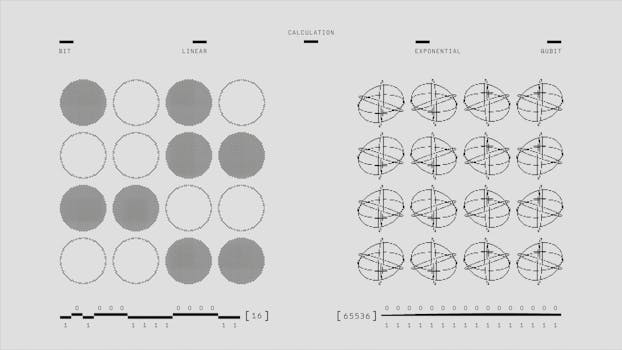
Understanding Quantum Mechanics and its Implications for Reality
Quantum Mechanics and its implications for reality have long fascinated scientists and philosophers alike. At its core, Quantum Mechanics is a branch of physics that studies the behavior of matter and energy at an atomic and subatomic level. In this article, we will explore the principles of quantum mechanics, its key theories and experiments, and the profound implications it has for our understanding of reality.
The Principles of Quantum Mechanics

Quantum mechanics is based on several key principles, including wave-particle duality, uncertainty principle, and superposition. Wave-particle duality suggests that particles, such as electrons, can exhibit both wave-like and particle-like behavior depending on how they are observed. The uncertainty principle, formulated by Werner Heisenberg, states that it is impossible to know certain properties of a particle, such as its position and momentum, simultaneously with infinite precision. Superposition, on the other hand, allows particles to exist in multiple states simultaneously, which is a fundamental concept in quantum computing.
Key Theories and Experiments

Several theories and experiments have shaped our understanding of quantum mechanics. The Schrödinger equation, developed by Erwin Schrödinger, is a mathematical equation that describes the time-evolution of a quantum system. The Heisenberg Uncertainty Principle has been experimentally verified through various studies, including the famous double-slit experiment. The Entanglement phenomenon, where two or more particles become correlated in such a way that the state of one particle cannot be described independently of the others, has been demonstrated through numerous experiments.
Implications for Reality

The implications of quantum mechanics for our understanding of reality are profound. Quantum mechanics suggests that reality is fundamentally probabilistic, rather than deterministic. This means that, at a quantum level, the outcome of events is uncertain and can only be described in terms of probabilities. Furthermore, quantum mechanics implies that reality is not fixed until it is observed, a concept known as the observer effect. This has led to interesting discussions about the nature of reality and the role of observation in shaping our understanding of the world.
Conclusion

In conclusion, quantum mechanics is a fascinating and complex branch of physics that has significant implications for our understanding of reality. By exploring the principles, theories, and experiments that underlie quantum mechanics, we can gain a deeper understanding of the quantum world and its profound implications for our understanding of reality. As we continue to advance our knowledge of quantum mechanics, we may uncover even more surprising and counterintuitive aspects of the quantum world, further challenging our understanding of the nature of reality.



